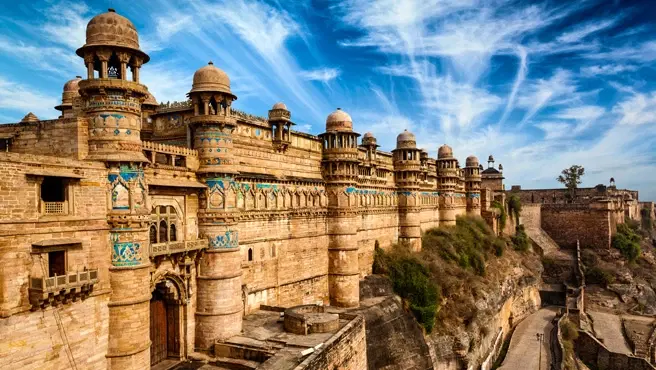
Flights
•03 min read

Imagine standing before the awe-inspiring Taj Mahal or exploring the ancient ruins of Machu Picchu—these iconic landmarks are not only breathtaking views but also living legacies of our past. World heritage sites are treasured gems that embody centuries of culture and history, offering a window into civilizations that continue to shape our modern world.
World heritage sites are landmarks chosen for their exceptional cultural or natural significance. These protected places ensure that traditions, natural beauty, and historical narratives are conserved for future generations. Organizations like UNESCO set criteria to recognize and safeguard these cultural and environmental wonders, maintaining a delicate balance between preservation and modern discovery.
UNESCO's enduring mission is to protect and celebrate these treasures under the World Heritage Convention established in 1972. The criteria for selecting these sites consider both cultural and natural values, highlighting the importance of history, architecture, art, and natural landscapes.
Cultural heritage sites burst with history—from the Great Wall of China to the Acropolis of Athens. These locations remind us of how human creativity and resilience have transformed ordinary landscapes into symbols of cultural identity and pride.
Natural sites like the Great Barrier Reef and Yellowstone National Park inspire awe with their stunning beauty and ecological importance. These protected areas remind us of the power of nature and the need to conserve our environment for balanced, sustainable development.

Today, there are thousands of world heritage sites across the globe that span continents and cultures. Some countries boast an impressive array of these sites, reflecting their rich legacies and continuing traditions. India, for example, shines with its diverse range of heritage treasures.
From the ancient city of Machu Picchu to the mystique surrounding the Pyramids of Giza, each site tells a story of human achievement and historical evolution. There are also lesser-known protected historical places that deserve recognition for their unique contributions to world cultural treasures.
Insight Corner: "Did You Know? The World Heritage Convention was inspired by the international effort to save the Abu Simbel temples in Nubia from flooding caused by the construction of the Aswan High Dam. This mission sparked global awareness for heritage preservation."
These sites serve as living museums that harbor our collective identity and history. They not only celebrate past triumphs and challenges but also nurture a sense of belonging and pride among communities. By preserving these treasures, we ensure that future generations can enjoy a tangible connection to their roots.
Heritage tourism enhances local economies and bolsters sustainable development. Travelers are drawn to these sites because they offer immersive experiences that blend luxury, comfort, and unforgettable cultural encounters. With travel services like Tata Neu, planning a trip to these destinations becomes seamless. Whether it's booking reliable flights with Air India or ensuring your plans stay protected with trip insurance add-ons like FlyCan and FlyNxt *T&C apply, your journey is enriched every step of the way. Earn NeuCoins on all bookings (1 NeuCoin = 1₹ saving) and enjoy benefits such as priority check-in and exclusive member deals—all designed to enhance your travel experience.

World Heritage sites are globally recognized landmarks that hold cultural, historical, or natural significance. They are protected under the UNESCO World Heritage Convention to ensure their preservation for future generations.
Cultural heritage encompasses tangible landmarks like monuments and intangible traditions such as languages and rituals. For example, Flamenco dancing in Spain is recognized as an intangible cultural heritage.
As of 2024, India has 41 UNESCO World Heritage Sites, including cultural, natural, and mixed properties.
These sites safeguard humanity’s shared heritage, fostering cultural understanding, environmental conservation, and sustainable tourism.
Italy holds the record for the highest number of World Heritage Sites, showcasing its rich cultural and historical legacy.
World Heritage Sites are more than just landmarks—they are vital pieces of our shared history and culture. As you plan your journeys with reliable services and rewards such as NeuCoins on every booking, allow yourself to be inspired by the splendor and significance of these sites. Embrace the journey of discovery, where every visit ignites new dreams, uncovers a deeper past, and celebrates the vibrant diversity of our world.